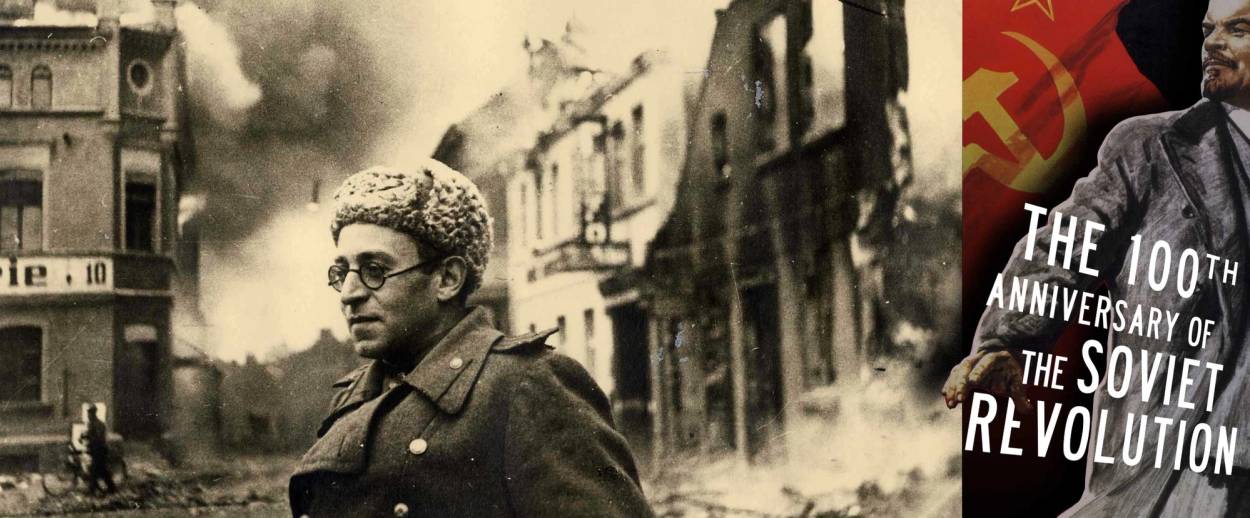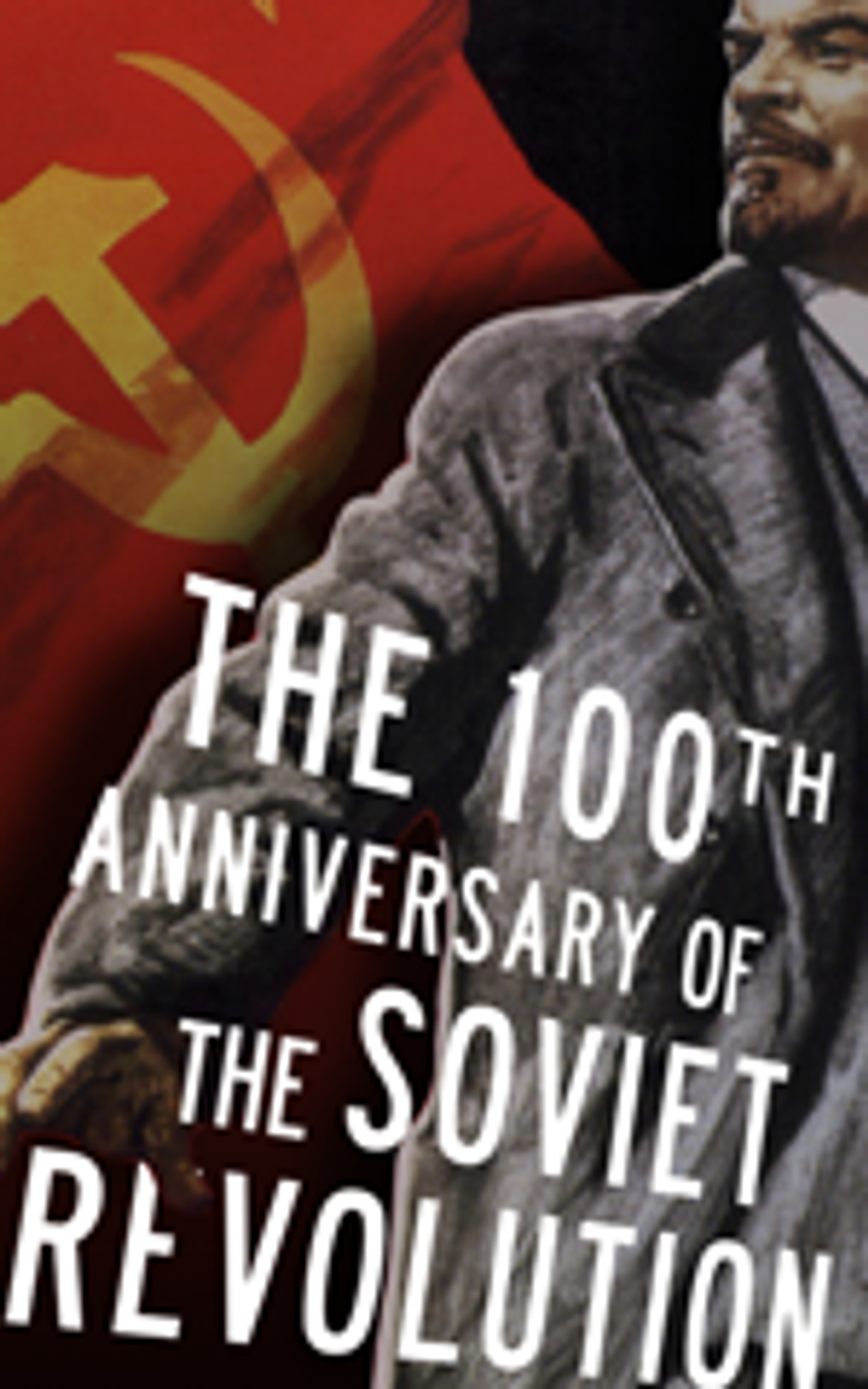Vasily Grossman, the Great Forgotten Soviet Jewish Literary Genius of Exile and Betrayal, Lives Inside Us All
Bookworm: if ‘Everything Flows,’ when does it stop?




Tell me to close my eyes, change the author’s name and all the place names, read slowly aloud the first page, and I will still know right away that Vasily Grossman’s Everything Flowsis Russian. It has that dynamic, shifting prose, incisive attention to detail and gesture, as if the busywork of our hands says more about us than anything else; gutting portrait-work that latches onto a character’s least-attractive qualities before softening them with something warm. It folds back an observation onto itself, then does it again, then a third time, as if some greater mystery can be found in a man repetitively rubbing his knees on a train. It even does that funny little thing where every character has two different names that seem totally unrelated.
In this case, the novel begins as Ivan Grigoryevich’s train pulls into Moscow, delivering him back home from the Soviet prison camps where he has spent the last 30 years. Ivan is greeted by a cousin who got fat and advanced his own scientific career by denouncing other scientists as enemies of the state, and who still resents Ivan for petty things that happened 30 years earlier. He also learns that his one-time lover has remarried. The whole of Moscow is full of duplicitous people who ratted out even their friends and families to Stalin’s merciless state bureaucracy—a force whose exercise of power is matched only by the vagaries and mutable allegiances of the guillotine in 18th-century France.
Grossman was a Soviet Jewish writer whose relentless documentation of Nazi atrocities was used in the Nuremberg trials, even as his activism flew in the face of Russia’s growing anti-Jewish sentiment. The original manuscript of his most famous novel, the 900-page Life and Fate—set in Russia during WWII—was physically seized from his home by the KGB. It is no surprise, then, that he would be able to produce such a breathlessly human story about inhuman times.

This book shows us a version of human existence that is rooted, above anything else, in contradiction—in betrayals of friends and colleagues, and in stories of how the prizes for such betrayals were both enjoyed and reviled by their recipients. Even the act of denouncing people is described both as an indisputably righteous sacrifice and as a singularly self-serving atrocity. As a result, even the lives of those who never went away to a gulag are surrounded by barbed wires: They live with a constant fear of having their betrayals discovered, a fear of confronting their own behavior. Grossman seems to believe that for those who committed state-sanctioned denouncements of innocent people, their greatest sin was not the act itself but rather in being good people and still committing these acts as if somehow it would have been less terrible had they been rotten to the core.
Finally there is the contradiction of freedom itself: after decades in prison, life beyond the barracks is daunting and terrifying and isolating, and yet this oppression of newfound freedom is itself what those in the prison camps desired most, as if suffering the pangs of freedom to therefore find oneself oppressed by freedom is itself the greatest form of freedom.
It’s all a back and forth. We can never be just one thing, know just one thing, or feel just one thing. Everything flows.
I’m not entirely convinced that Grossman didn’t burn whole sections of this book. You can read 30 pages of a character’s life or learn many details of another’s lunch without ever seeing these characters again. There’s a full courtroom scene that reads almost like the chorus in Aeschylus, and a chapter that is entirely dialogue, and the whole book has about as many dream sequences as the first season of The Sopranos. It can, at times, feel halting, like it skips not just one beat but an entire string of beats, as if, without realizing it, the author had been trying to mimic with his writing the total detachment from time that is the hallmark of life in prison camps. Which is to say, the book isn’t finished, and it is.
If this book believes so deeply in contradiction, it is because it tells the story of a man who lived 30 years, and in that time, somehow did not really live at all. His life was put on hold and drained out of him at the same time. He arrives with nothing but returns to the world heavily burdened. He went nowhere and yet, at the same time, he wasn’t here.
One of the most famous scenes in this book is a chapter in which Ivan’s new landlady-turned-lover shares for the first time acts she committed during a famine. However, one of the parts I will reread again and again is a scene early on in which Grossman describes the systematic way in which those who are absent eventually depart from the memories of those who loved them—how with time, the absent lose the right to exist in people’s memories and eventually slip into a bleak, final oblivion, where they are forgotten entirely. Reading this I wonder, as I am one day relegated from active mourning to passive, distant memory, which parts of me will fall first into that oblivion. When will people forget first what color were my eyes? Or will it be my nose?
But perhaps the most powerful moment in this book is a description of frantic, desperate hands poking out from a crack in the facade of a cattle car on its way to a gulag, sending letters to loved ones out into the night sky, not knowing whether or not they will arrive, not knowing whether these letters are actually being sent for someone to read—to bring someone else comfort—or simply for the sender. It’s a scene that shows what it means for someone in an instant to be completely hopeful and yet totally, devastatingly hopeless at the exact same time. What it looks like for someone to hold tight to those they love, and at the same time abandon every last part of who they were. And isn’t this the greatest contradiction of all?
***
Read Alexander Aciman’s Bookworm column in Tablet magazine on Mondays.
Alexander Aciman is a writer living in New York. His work has appeared in, among other publications, The New York Times, Vox, The Wall Street Journal, and The New Republic.